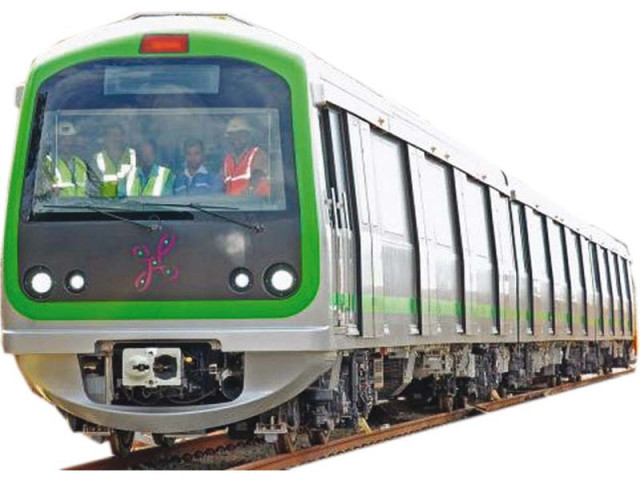Pakistan Railways prepares for tougher challenges ahead
Hopes to earn better revenues, focuses mainly on freight operations

Hopes to earn better revenues, focuses mainly on freight operations.
However, the challenges ahead are even tougher as the management will have to undertake and complete some key projects within a set timeframe as well as meet passenger expectations and boost freight strength.

According to railway officials, the company had gone past its debacle period (2008-13) and what the current management is doing for its rehabilitation is quite satisfactory.
“Don’t trust our claims, just check the revenues, they will tell how much we have recovered in the past two years,” said Javed Anwar, Senior General Manager Operations of Pakistan Railways, while talking to The Express Tribune. “We have put the company on track again and are hopeful about the future.”
After a span of eight years, the railways managed to beat targets in fiscal year 2013-14 and earned Rs2.38 billion more than the target of Rs21.6 billion. The income was also higher by Rs5.91 billion compared to a year earlier.
For 2014-15, the revenue target was set at Rs28 billion and Anwar voiced the hope that the figure would reach Rs31 billion.
However, another railway official pointed out that though earnings would be much better, the company was likely to face a deficit of around Rs12 billion in 2014-15.
In the past two years, the railways has managed to bring down the deficit to Rs18 billion, which stood at around Rs30 billion earlier.
“We are focusing on freight operations, the main source of revenue generation, and hope that the operating ratio will fall below 100% in about three years, which will turn the railways into a profit-earning company,” said Anwar. The ratio currently stands at around 138%.
The number of freight trains has gone up to 10 per day from the low of one per day. Freight revenues are also likely to touch Rs8 billion this year, the highest ever in the history of Pakistan Railways.
Assets deteriorating
Though the company is recovering and increasing its locomotive strength by rehabilitating and purchasing new engines from the most trusted name - General Electric - mostly for freight operations, its assets are deteriorating.
“The railways lacks technical and infrastructural expertise as it didn’t hire the required technical staff due to small number of express and branch line trains,” the official said.
Apart from this, the tracks and bridges are in a dilapidated condition. Of the total 13,841 bridges, most have crossed their life span. Signalling system too has not been upgraded, which may lead to an unpleasant situation.
“We are working with a small number of technical workers since the financial health of railways is not allowing the recruitment of new staff,” said Inayat Ali, President of the Railways Workers Union. “It is now looking for more government support like in the case of purchasing new coaches.”
Pakistan Railways also has to play an important role in the shipment of coal to some power plants, which are currently being developed.
“It is true that some tracks and bridges are in poor health, but we have put in place engineering restrictions wherever the infrastructure is weak,” Anwar said. “This means that the train should cross those points at a slow speed, but we have to strengthen the tracks to travel at a fast pace.”
For coal transportation, the railways can use existing infrastructure for Sahiwal and Jamshoro power stations. For other projects, the company would have to invest in infrastructure development, he said.
CPEC project
The biggest challenge for the railways is to meet expectations of China, which is providing $3.69 billion under the China-Pakistan Economic Corridor. As part of the programme, the Karachi-Peshawar (Havelian) track, also called Main line-I, will be rehabilitated to run trains on a fast track of 160 km.
“I don’t think railways can go for rehabilitation and upgrading of the new track alone. We have limited powers and have the expertise to only repair or lay short-distance tracks,” Anwar said.
Published in The Express Tribune, July 22nd, 2015.
Like Business on Facebook, follow @TribuneBiz on Twitter to stay informed and join in the conversation.





1733130350-0/Untitled-design-(76)1733130350-0-208x130.webp)












COMMENTS
Comments are moderated and generally will be posted if they are on-topic and not abusive.
For more information, please see our Comments FAQ